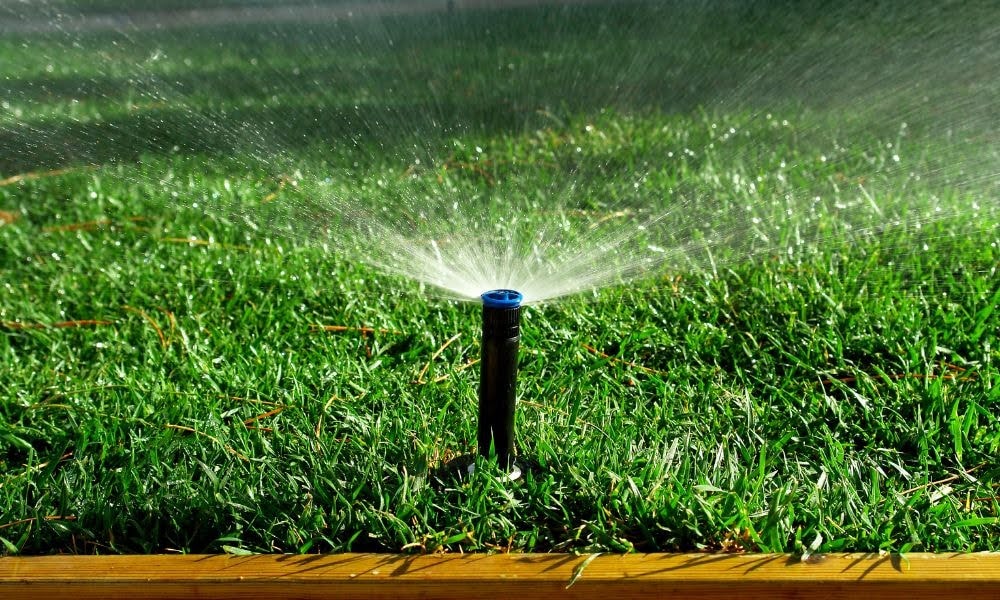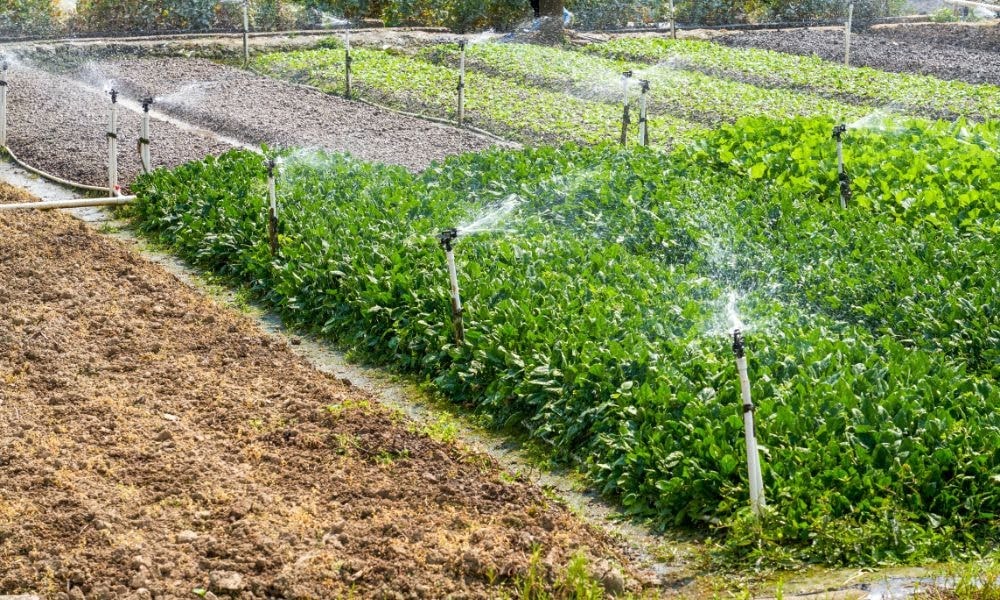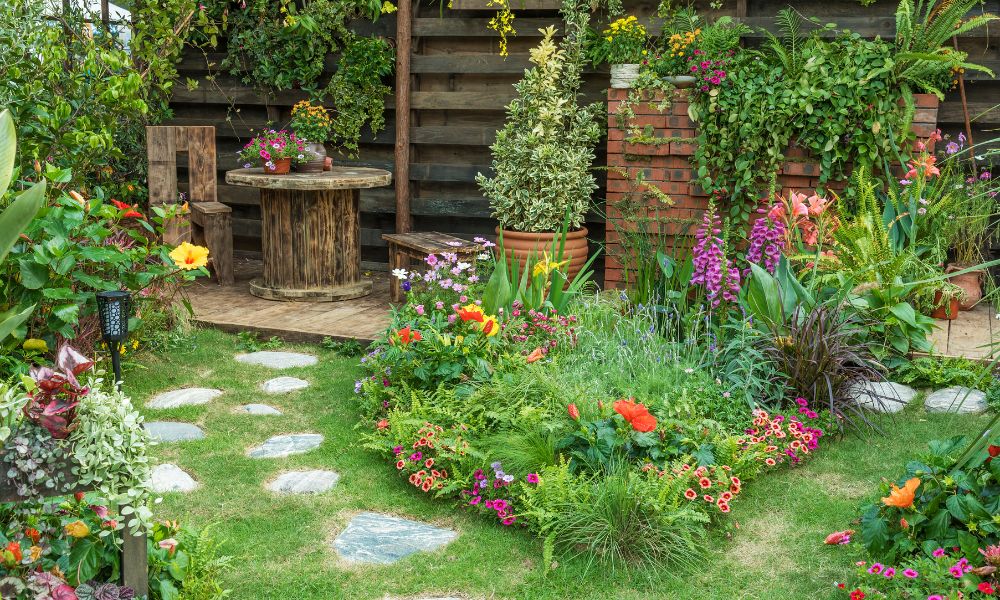Efficient water usage is more important than ever, especially when it comes to maintaining beautiful landscapes. Smart irrigation systems for modern landscapes offer a solution that not only optimizes water use but also improves overall plant health.
But what exactly is smart irrigation? In simple terms, it’s a technology-driven method of watering plants that adjusts based on real-time conditions like weather and soil moisture levels, ensuring your garden or landscape gets the right amount of water when it’s needed.
Traditional irrigation systems have evolved significantly over the years, from basic sprinkler setups to advanced, tech-driven solutions. As landscapes have become more intricate, the need for smarter, more efficient systems has grown. This is why smart irrigation systems are becoming increasingly popular. They provide an easy way to conserve water, maintain ideal soil moisture levels, and promote healthier plant growth—all while reducing manual effort and minimizing water waste
Overview of Smart Irrigation Technology
Smart irrigation technology adjusts watering schedules based on conditions, optimizing water usage and minimizing waste for healthy plant growth. It’s a popular choice for residential and commercial landscapes. Below are the components of a Smart Irrigation System:
Controllers: These are the brains of the system, using smart technology to adjust watering schedules based on weather data and soil conditions.
Sensors: Soil moisture sensors and weather sensors monitor the environment to ensure plants get the right amount of water.
Valves and Sprinklers: These components deliver water to specific zones, often with options for drip irrigation for more efficient water delivery.
Connectivity Features: Many systems allow remote control and monitoring via smartphones or other devices, making it easy to adjust settings from anywhere.
Differences Between Traditional and Smart Irrigation Systems
Traditional irrigation systems work on preset timers, watering plants regardless of weather or soil conditions. In contrast, smart irrigation systems use real-time data to make adjustments, resulting in more efficient water use, healthier plants, and reduced water waste. While traditional systems rely heavily on manual operation, smart systems offer automation and customization through advanced technology.
The Benefits of Smart Irrigation Systems
One of the greatest advantages of smart irrigation systems is their ability to conserve water, making them a key tool for environmental sustainability. Smart irrigation technologies adjust watering schedules using soil moisture sensors and weather data to minimize water waste, ensure healthier landscapes, and reduce overwatering and underwatering issues.
Smart irrigation controllers help save water and money by optimizing watering schedules, promoting healthier plant growth, and integrating with other smart home technologies. As a result, they offer an eco-friendly, cost-effective, and efficient solution for maintaining modern landscapes.
Transform Your Garden with Wellspring
Smart Irrigation System Features
If rain is expected or temperatures drop, the system reduces or pauses watering to conserve water, ensuring efficient water usage in any condition.
Soil Moisture Sensors
A key feature of modern irrigation systems is the soil moisture sensor, which monitors the soil’s water levels. These sensors help optimize water usage by watering only when the soil is dry, preventing overwatering and promoting healthy plant growth.
Remote Monitoring and Control
Smart irrigation systems allow you to monitor and control your system remotely through a smartphone or tablet. This makes it easy to adjust settings, view performance, and even detect issues like leaks, all while saving water efficiently.
Zone-Specific Customization
Modern irrigation systems offer zone-specific customization, meaning you can set different watering schedules for various parts of your landscape. This ensures that plants with different needs get the right amount of water, conserving water and optimizing growth.
Automated Scheduling and Adjustments
Automated scheduling enables the system to adjust watering times based on soil moisture, weather conditions, and plant requirements. This smart feature helps save water and ensures the landscape is always properly hydrated without manual intervention.
Leak Detection and Alerts
Smart irrigation systems often come with leak detection sensors, sending alerts if a leak is found. This prevents water waste and ensures the system operates efficiently, saving water and avoiding unnecessary costs.
Applications of Smart Irrigation Systems in Landscape Design
Smart irrigation systems have a wide range of applications across different types of landscapes. In residential landscapes, they help homeowners maintain lush gardens while conserving water and minimizing costs. For commercial properties, these systems ensure that large green spaces are maintained efficiently, optimizing water usage without requiring constant manual intervention.
In municipal parks and public spaces, smart irrigation is used to preserve natural beauty while supporting water conservation efforts. Agricultural uses of these systems help farmers optimize water delivery to crops, promoting healthier yields. On golf courses and sports fields, smart irrigation ensures that large turf areas are watered evenly and efficiently, keeping them in ideal condition without wasting water.
The Environmental Impact of Smart Irrigation
Smart irrigation systems reduce water waste and promote efficient water use, preserving local water resources and contributing to a sustainable future. They deliver the right amount of water when and where it’s needed, conserving water while maintaining healthy landscapes. Smart irrigation also supports long-term environmental goals and is a valuable tool in modern landscape design for homes, businesses, and public spaces.
Installation and Maintenance of Smart Irrigation Systems
Choosing the right modern irrigation system depends on the size and needs of your landscape. It’s important to consider features like soil moisture sensors, weather-based adjustments, and zone-specific customization to ensure the system fits your specific requirements. During installation, proper planning and setup are key to making sure everything runs smoothly.
Once installed, regular maintenance and monitoring are essential to keep the system performing efficiently—this includes checking sensors, ensuring proper water flow, and making adjustments as needed. If any issues arise, troubleshooting common problems like leaks or connectivity issues can typically be done through the system’s app, making maintenance easier and more convenient.
The Cost of Smart Irrigation Systems
The upfront investment for a smart irrigation system can range from $500 to $1,500 depending on the size of the landscape and the system’s features. Over time, these systems can offer long-term cost savings of 20% to 50% on water bills by optimizing water usage and preventing waste. For example, homeowners might save $100 to $300 annually on water bills, meaning the system could pay for itself in just a few years.
Financial incentives and rebates, which can range from $50 to $300 depending on your location, further reduce the overall cost, making smart irrigation systems an eco-friendly and cost-effective choice.
Book Your Landscape Assessment with Wellspring
Choosing the Best Smart Irrigation System for Your Needs
When choosing a smart irrigation system, the first step is to evaluate the size and specific needs of your landscape. Larger areas may require more zones and advanced features like soil moisture sensors, while smaller gardens can benefit from simpler systems. Understanding your landscape’s watering requirements will help you select a system that optimizes water use efficiently.
Comparing System Features
It’s important to compare the features of different smart irrigation systems to find the right fit. Look for systems with weather-based adjustments, remote control, and leak detection. Features like zone-specific customization and automated scheduling can make a big difference in how effectively the system conserves water and supports healthy plant growth.
Popular Brands and Models
There are several trusted brands in the smart irrigation market, such as Rachio, Rain Bird, and Orbit. Each offers different models with various features, so it’s important to research what best fits your budget and landscape needs. These popular brands provide reliable options that cater to both residential and commercial applications.
Consulting with Landscape Professionals
If you’re unsure which system is right for you, consulting with a landscape professional can provide valuable insight. They can help assess your landscape, recommend the best smart irrigation system, and even handle the installation. Their expertise ensures that your system will be set up for maximum efficiency and long-term success.
Future Trends in Smart Irrigation
The future of smart irrigation is moving toward greater integration with cutting-edge technologies. Innovations in sensor technology are pushing the boundaries, allowing for more precise monitoring of water needs in real time.
AI and machine learning will enable irrigation systems to predict optimal watering patterns based on past data, making them more efficient over time. As cities grow, smart irrigation is also becoming an essential part of urban planning, with applications in managing green spaces more sustainably, conserving water on a larger scale, and contributing to eco-friendly infrastructure development.
The Future of Landscapes Lies in Smart Irrigation
As water conservation becomes more important, smart irrigation is quickly becoming the go-to solution for efficient and sustainable landscape design. If you’re looking to maintain a healthy, thriving landscape while reducing water waste, adopting smart irrigation technology is a smart move. Its ability to customize watering schedules and adapt to changing conditions makes it a vital tool for modern landscapes.
Smart irrigation helps manage water use effectively and contributes to a more sustainable future. Embracing this technology means investing in your landscape and playing a part in better water management for the environment.







